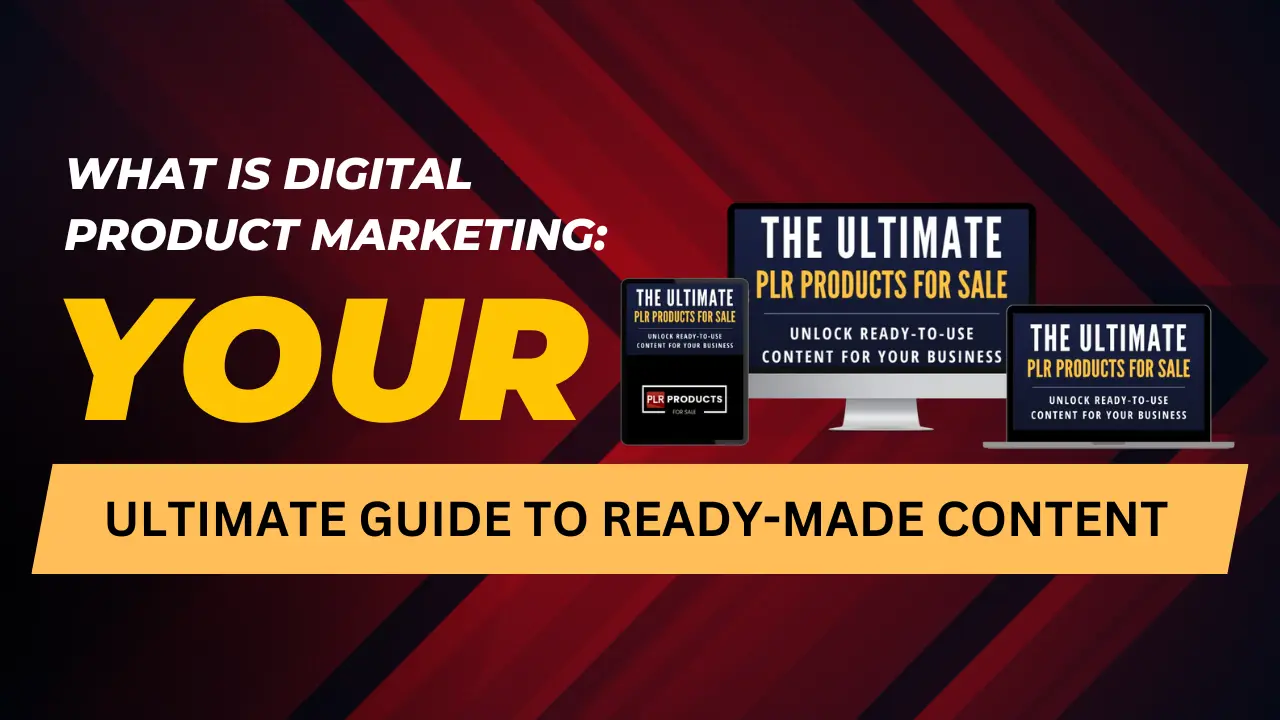What Is Digital Product Marketing?
Learn about digital product marketing, its strategies, and how to effectively promote and sell digital products online.
Digital product marketing refers to the strategies and tactics used to promote and sell digital products—items that exist in digital form rather than physical goods. These products include eBooks, online courses, software, templates, and subscription services. The primary goal of digital product marketing is to attract customers, demonstrate value, and drive conversions through online channels.
In this guide, we’ll explore the definition of digital product marketing, its benefits, and the key strategies needed to succeed in this field.
What Are Digital Products?
Digital products are intangible items delivered electronically. They don’t require physical inventory or shipping, which makes them cost-effective and scalable. Examples of digital products include:
- eBooks: Informative or educational books in digital format.
- Online Courses: Video or text-based training programs on various topics.
- Software: Applications, plugins, or SaaS platforms.
- Templates: Graphic design templates, presentation slides, or website themes.
- Digital Subscriptions: Ongoing access to exclusive content or services, such as membership sites.
Why Is Digital Product Marketing Important?
Marketing is crucial for digital products as it ensures they reach the right audience, convey their value, and drive purchases. Here are some reasons why digital product marketing is essential:
1. High Competition
The digital marketplace is saturated with products. Effective marketing helps your offering stand out from competitors.
2. Scalability
Since digital products are infinitely reproducible, marketing campaigns can scale without additional production costs.
3. Global Reach
With the right marketing strategies, you can target a global audience, increasing revenue potential.
4. Customer Education
Marketing helps communicate the benefits and features of your product, addressing customer pain points and driving conversions.
Strategies for Digital Product Marketing
Successful digital product marketing relies on targeted strategies that appeal to your audience and highlight the product’s value. Here are the most effective methods:
1. Content Marketing
Create valuable and informative content that attracts and engages your audience. This includes blog posts, tutorials, case studies, and videos that showcase the benefits of your digital product.
Example: A software company might publish articles on how their tool solves specific business problems.
2. Search Engine Optimization (SEO)
Optimize your website and product pages with relevant keywords to rank higher on search engines. SEO drives organic traffic and increases visibility.
Tips:
- Use keywords like “best (product type) for (audience).”
- Optimize meta tags, titles, and descriptions.
3. Email Marketing
Email campaigns nurture leads and keep customers informed about product updates, promotions, or new releases. Personalized emails can boost engagement and conversions.
Example: Offer a free eBook or trial in exchange for an email subscription, then follow up with targeted offers.
4. Social Media Marketing
Leverage platforms like Instagram, LinkedIn, Facebook, and Twitter to promote your product, share testimonials, and engage with potential customers.
Tip: Use social media ads to reach a broader audience and retarget users who have visited your site.
5. Affiliate Marketing
Partner with influencers or content creators who can promote your product to their audience in exchange for a commission.
Example: Collaborate with YouTubers who create tutorials related to your digital product.
6. Pay-Per-Click (PPC) Advertising
Use paid ads on platforms like Google Ads or social media to drive traffic to your product pages. PPC is ideal for targeting specific keywords or audiences.
7. Customer Reviews and Testimonials
Showcase positive feedback from existing customers to build trust and credibility.
Example: Display testimonials on your website or feature them in social media posts.
Benefits of Digital Product Marketing
1. Low Overhead Costs
Digital products don’t require manufacturing or shipping, reducing overhead expenses. Marketing them online is cost-effective and efficient.
2. High Profit Margins
With no physical inventory, digital products often have higher profit margins compared to physical goods.
3. Flexibility
You can test different marketing strategies, pricing models, and formats to find what works best for your audience.
4. Automation Opportunities
Digital product sales can be automated using tools like email sequences, membership sites, or online marketplaces.
Tools for Digital Product Marketing
To streamline your marketing efforts, consider these essential tools:
- Canva: For creating graphics and promotional materials.
- Mailchimp: For email marketing campaigns.
- Ahrefs: For keyword research and SEO optimization.
- Hootsuite: For scheduling and managing social media posts.
- Google Analytics: For tracking website traffic and performance.
FAQs
What is the difference between digital and physical product marketing?
Digital product marketing focuses on promoting intangible goods through online channels, while physical product marketing involves both online and offline strategies for tangible items.
Do I need a website to market digital products?
While having a website is highly recommended for building credibility and hosting your product, you can also use marketplaces like Amazon or Etsy to sell digital products.
How much does it cost to market a digital product?
Costs vary depending on your marketing strategies. You can start with free options like SEO and social media or invest in paid ads and advanced tools for greater reach.
Can digital products generate passive income?
Yes, once created and marketed effectively, digital products can generate passive income through automated sales funnels and recurring subscriptions.
How do I price a digital product?
Pricing should reflect the product’s value, target audience, and competitor rates. You can also test different price points to find the most effective option.
Conclusion: Mastering Digital Product Marketing
Digital product marketing is an essential skill for businesses and creators looking to succeed in the online marketplace. By leveraging strategies like content marketing, SEO, email campaigns, and social media promotion, you can effectively reach your target audience and drive sales.
For tools and resources to simplify your digital product marketing efforts, visit PLRProductsForSale.com and explore high-quality content tailored for success.




